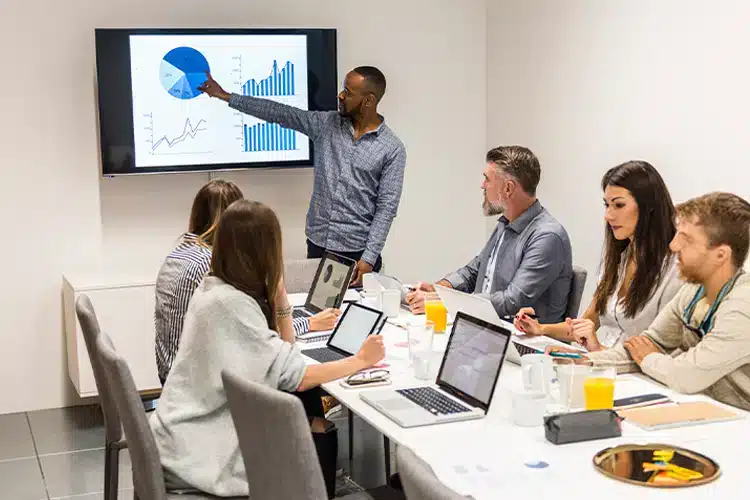What Are the Basics of Transformative Learning Theory?
Updated: August 22, 2024

Transformative Learning Theory is an exciting concept in education that revolves around personal growth through re-evaluating beliefs and assumptions. This theory, developed by Jack Mezirow in the late 20th century, emphasizes the importance of critical reflection and open-mindedness. It encourages learners to question their long-held views and integrate new perspectives, fostering a deeper understanding of themselves and the world around them.
At the heart of transformative learning are key stages like experiencing a disorienting dilemma, engaging in critical reflection, and participating in rational discourse. These stages guide learners through a process of transformation, where they critically examine and reassess their existing beliefs. The ultimate goal is to achieve a shift in perspective that leads to significant changes in how learners perceive their role and potential in the world.

Who Developed Transformative Learning Theory?
In 1978, Jack Mezirow, an influential American sociologist and professor, introduced transformative learning theory. Mezirow’s work was inspired by his wife’s experiences when she returned to college as an adult learner. Observing how her educational journey led to significant shifts in her worldview, Mezirow was motivated to explore how adults learn and grow through education.
While working at Columbia University, Mezirow developed the idea that transformative learning occurs when individuals critically examine their beliefs, assumptions, and experiences. His theory emphasizes the importance of reflection and dialogue in fostering personal growth and perspective transformation.
Mezirow’s contributions to adult education have been widely recognized, and his theory has become a cornerstone of educational philosophy. It has inspired countless educators to adopt teaching methods encouraging learners to engage deeply with their beliefs and perspectives, promoting a more dynamic and self-aware approach to learning.
What Are the Key Components of Transformative Learning Theory?
Transformative Learning Theory is built around several key components that work together to facilitate profound personal growth and changes in perspective. Here’s a closer look at these components:
Experience
Experience is the foundation of transformative learning. Significant experiences, particularly those that challenge existing beliefs or assumptions, act as catalysts for transformation. These disorienting dilemmas prompt learners to question their current worldview, setting the stage for deeper reflection.
Critical Reflection
Critical reflection involves examining and questioning one’s beliefs, assumptions, and values. This process encourages learners to identify biases and gaps in their understanding, allowing them to reframe their perspectives and develop a more nuanced view of the world.
Rational Discourse
Rational discourse is essential for validating and refining new perspectives. Engaging in open and honest dialogue with others helps learners test their ideas and receive feedback, facilitating a deeper understanding of different viewpoints and fostering collaborative meaning-making.
Context Awareness
Understanding the social, cultural, and historical contexts that shape one’s beliefs and experiences is crucial in transformative learning. Context awareness allows learners to recognize how external factors influence their perspectives and appreciate the diversity of experiences.
Empowerment
The transformative learning process leads to empowerment by increasing self-awareness and confidence. Learners gain the ability to act based on their new insights, promoting autonomy and encouraging them to take the initiative in personal and professional contexts.

How Does Transformative Learning Differ from Other Adult Learning Theories?
Transformative Learning Theory stands out among adult learning theories because it emphasizes profound personal change. Unlike other theories focusing on knowledge acquisition or skill development, transformative learning is about changing one’s perspective and understanding of the world. It encourages adults to critically examine their beliefs and assumptions, leading to significant shifts in their worldview.
Focus on Perspective Transformation
Transformative Learning Theory uniquely centers on deep changes in how adults view themselves and their world. It emphasizes personal growth and transformation rather than just acquiring new skills or knowledge. This focus on perspective transformation encourages learners to challenge their existing beliefs and integrate new insights, leading to a more comprehensive understanding of themselves and their surroundings.
Role of Critical Reflection
A key differentiator of Transformative Learning Theory is the importance placed on critical reflection. Unlike other theories prioritizing cognitive learning, transformative learning encourages learners to reflect deeply on their experiences and assumptions. This introspective process helps learners identify biases, question their beliefs, and develop a more nuanced understanding of complex issues.
Disorienting Dilemmas
Transformative Learning Theory introduces the concept of disorienting dilemmas as catalysts for transformation. These dilemmas challenge learners to rethink their perspectives and assumptions, prompting a re-evaluation of their beliefs. This aspect sets it apart from other adult learning theories that may not emphasize such transformative experiences as a key part of the learning process.
What are Some Criticisms of Transformative Learning Theory?
While Transformative Learning Theory has gained recognition for its focus on personal growth and perspective change, it has also faced criticism. Some critics argue that the theory places too much emphasis on rational thought and may overlook other aspects of learning, such as emotions and intuition. Others highlight potential cultural bias, as the theory is rooted in Western educational traditions and may not be universally applicable.
Overemphasis on Rationality
Critics of Transformative Learning Theory often point out its strong focus on rationality. They argue that the theory may neglect the emotional and intuitive aspects of learning, which are equally important for personal growth and understanding. This criticism suggests a more holistic approach incorporating rational and emotional elements could enhance the theory’s effectiveness.
Cultural Bias
Another criticism is that Transformative Learning Theory may reflect Western cultural values and assumptions, potentially limiting its relevance in diverse cultural contexts. Critics argue that the theory’s emphasis on individual reflection and rational discourse may not align with the educational practices and beliefs of other cultures. This raises questions about the theory’s universal applicability and calls for a more inclusive approach that considers cultural diversity.
Complexity and Accessibility
Some educators and learners find Transformative Learning Theory complex and challenging to implement in practice. The theory’s emphasis on deep reflection and perspective transformation can be demanding, requiring significant time and effort. This complexity may limit its accessibility and practicality in various educational settings, particularly those with limited resources or support.
Challenges in Implementing Transformative Learning
Implementing Transformative Learning approaches can be challenging due to various factors. Educators may face resistance from traditional educational systems that prioritize standardized assessments and factual knowledge. Creating an environment that fosters critical reflection and dialogue can be difficult, especially when learners are accustomed to more conventional teaching methods.
Resistance to Change
One of the primary challenges in implementing Transformative Learning is overcoming resistance to change. Both educators and learners may be reluctant to adopt new teaching and learning methods that require significant shifts in perspective and approach. This resistance can be rooted in a preference for familiar practices or a lack of understanding of the benefits of transformative learning.
Creating Supportive Environments
To facilitate Transformative Learning, educators must create supportive environments that encourage open dialogue, critical reflection, and perspective transformation. However, achieving this can be challenging due to time constraints, resource limitations, and institutional barriers. Educators need to develop strategies to overcome these obstacles and create spaces that promote meaningful learning experiences.
Assessing Transformative Learning
Assessing Transformative Learning outcomes can be complex, as it focuses on personal growth and perspective change rather than standardized knowledge acquisition. Educators must develop alternative assessment methods that capture the depth and breadth of learners’ transformations. This requires a shift away from traditional evaluation techniques and the adoption of more qualitative and reflective approaches.

How Can Educators Facilitate the Process of Transformative Learning?
Educators can be pivotal in facilitating transformative learning by creating an environment that encourages critical reflection and open dialogue. This involves designing learning experiences that challenge students’ beliefs and perspectives and provide self-examination and critical thinking opportunities.
Educators should focus on fostering disorienting dilemmas that provoke thought and introspection while guiding learners in reflective practices. Encouraging rational discourse and collaborative discussions is essential to help students validate and refine their new perspectives.
They must also be sensitive to their students’ emotional and cultural contexts, ensuring that the learning environment is supportive and inclusive. Educators can effectively guide learners through the transformative learning process by developing skills in facilitating these elements.
Preparing to Apply Transformative Learning Theory
To effectively apply Transformative Learning Theory principles, educators and learners should prepare by engaging in self-assessment and creating an environment conducive to transformation.
This involves cultivating a growth mindset where educators and learners are open to change and willing to challenge their beliefs and assumptions. Preparing the environment may include setting up spaces encouraging reflection and dialogue and integrating activities promoting critical thinking and self-examination.
Developing strategies for guiding reflective practices and facilitating open discussions is crucial for implementing transformative learning. By fostering an atmosphere of curiosity and openness, educators and learners can embark on a journey of personal growth and meaningful learning experiences.
FAQs
How does transformative learning theory relate to personal growth?
Transformative learning theory focuses on helping individuals critically examine their beliefs and assumptions, leading to personal growth and a deeper understanding of themselves and the world.
What types of experiences typically trigger transformative learning?
Experiences that challenge deeply held beliefs or present disorienting dilemmas often trigger transformative learning by prompting individuals to reassess their perspectives.
Can transformative learning be applied in professional development settings?
Yes, transformative learning can be applied in professional development to help individuals gain new insights, adapt to changes, and improve their professional practices.
How does emotional intelligence relate to transformative learning?
Emotional intelligence is crucial in transformative learning as it helps individuals manage emotions, empathize with others, and navigate complex social interactions, all of which are important for personal growth and perspective transformation.
How does transformative learning theory relate to lifelong learning?
Transformative learning theory encourages continuous self-reflection and critical examination of beliefs. It promotes lifelong learning by fostering a mindset open to change and new experiences throughout one’s life.
Can transformative learning be measured or assessed?
Assessing transformative learning can be challenging due to its subjective nature, but it can be evaluated through reflective journals, self-assessment tools, and observing changes in attitudes, behaviors, and perspectives over time.
